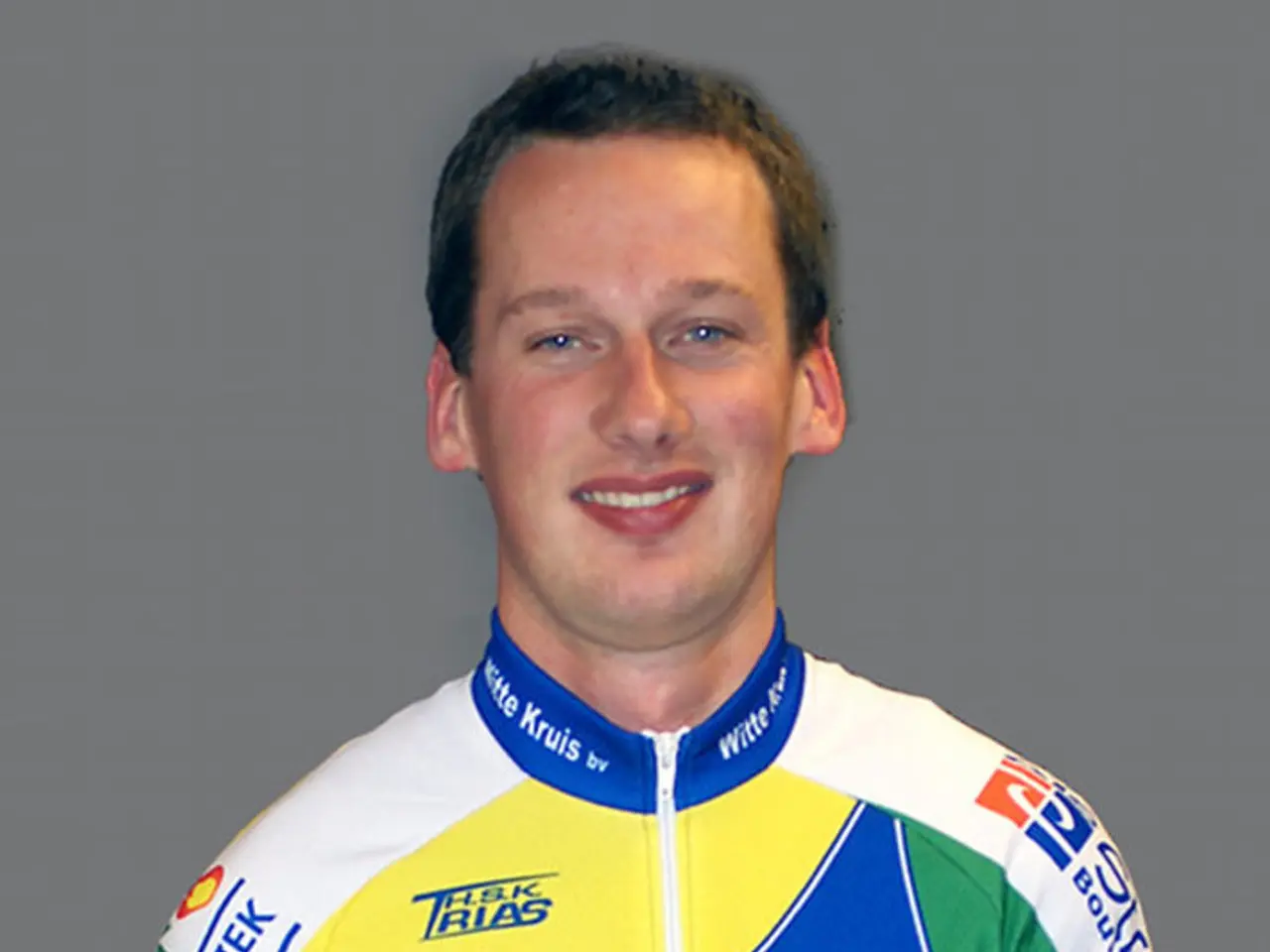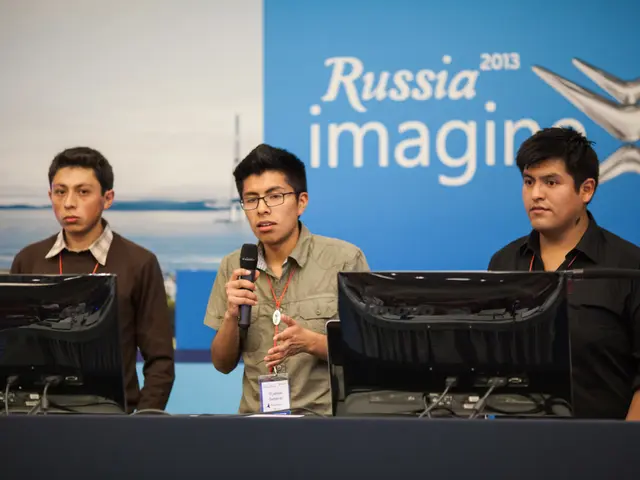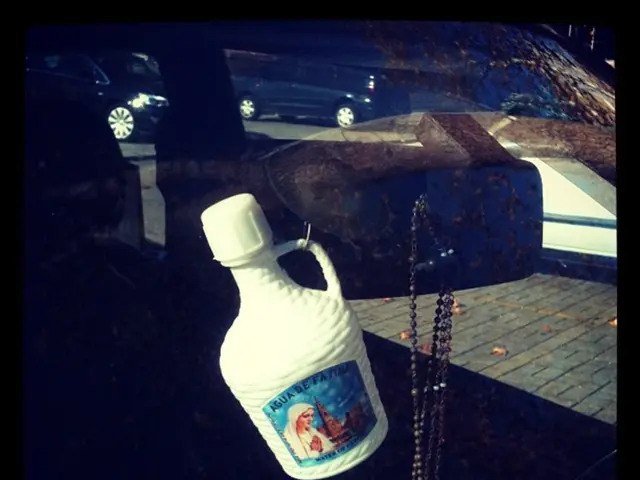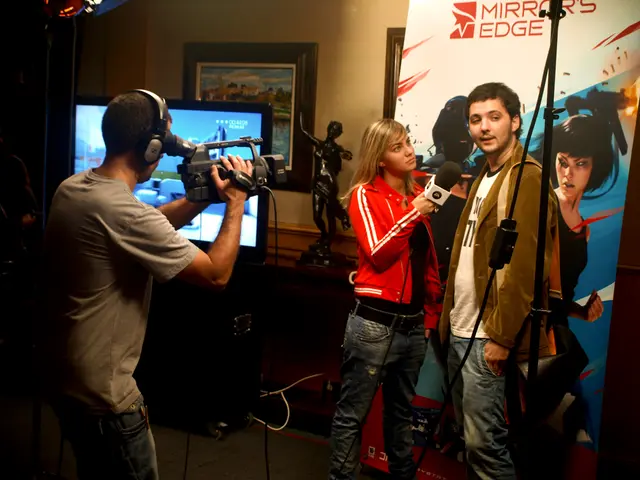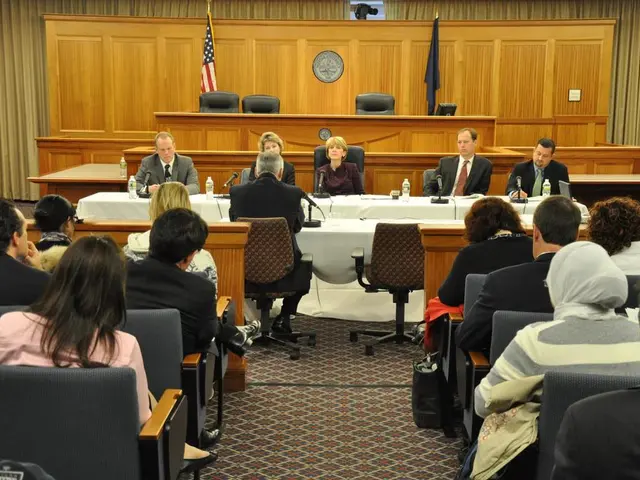Athletes from the University of Iowa Charged in a Sport Betting Investigation
In a significant shift towards modernizing its sports betting policies, the NCAA is currently considering a proposal that would permit student-athletes to bet exclusively on professional sports, while maintaining a strict ban on wagering on college sports.
The proposal, undergoing consideration with a vote expected in October 2025, also requires approval from Divisions II and III for any rule changes to be implemented across all NCAA levels. If adopted, this change would open up new possibilities for student-athletes and staff, while continuing to prioritize the integrity of collegiate sports.
The move comes in the wake of a series of high-profile gambling scandals involving student-athletes from universities such as Iowa State and the University of Iowa. Three athletes from the University of Iowa, including basketball starter Ahron Ulis, catcher Gehrig Christensen, and football backup kicker Aaron Blom, are facing criminal charges related to sports gambling. Ulis, who transferred to Nebraska to play under head coach Fred Hoiberg in the off-season, is said to have made over $34,800 worth of bets between February 2021 and December 2022, while Blom made 170 bets totaling $4,400 using an account under his mother's name. Christensen, who is no longer with the Iowa baseball team, placed wagers totaling $2,400 in 559 different bets, primarily on NBA games.
The Iowa Criminal Division has charged a total of seven student-athletes in a gambling probe, and Eyioma Uwazurike, a football player from Iowa State, faces an indefinite suspension by the NFL for betting on games during his rookie season in 2022. Uwazurike is one of ten NFL players suspended for violating the league's strict gambling policy last season.
The gambling charges have brought attention to sports gambling among student-athletes and the potential consequences they may face. Currently, violations of existing sports gambling rules can lead to serious consequences, including mandatory withholding from competition and repayment penalties.
If the proposed rule change is adopted, student-athletes and staff would be permitted to bet exclusively on professional sports, while continuing to be prohibited from betting on college sports and sharing any information about collegiate events with bettors. The change could potentially ease penalties related to minor professional sports betting infractions, emphasizing education and mental health treatment over automatic sanctions.
However, the NCAA Division I Council's proposal is not without controversy. Critics argue that the relaxation of betting rules could lead to increased corruption in college sports, particularly if student-athletes are allowed to bet on their own school's events. Four student-athletes from Iowa State University were accused of gambling on their own school's events.
Despite these concerns, the NCAA's proposal reflects the broader acceptance and legalization of sports betting nationwide. As the landscape of sports betting continues to evolve, the NCAA's decision could reshape the regulatory environment for student-athletes and collegiate sports.
[1] NCAA Bylaws (2021): Sports Wagering [2] NCAA Division I Council Proposal (2025): Allowing Student-Athletes to Bet on Professional Sports [3] NCAA Division II Enforcement (2023): Sports Wagering Violations and Sanctions [4] NCAA Division I Council Discussion Paper (2023): The Impact of Legalized Sports Betting on Collegiate Athletics
- The NCAA's 2025 proposal, dubbed the Division I Council Proposal, aims to alter the existing sports betting policies, allowing student-athletes to wager exclusively on professional sports, while banning bets on college sports.
- The consideration of this proposal, scheduled for a vote in October 2025, follows a series of gambling scandals that have implicated student-athletes from universities such as Iowa State and the University of Iowa, with some facing criminal charges and suspension from sports.
- If adopted, the proposal could ease penalties for minor professional sports betting infractions, favoring education and mental health treatment over automatic sanctions, while maintaining a strict ban on wagering on college sports to uphold the integrity of collegiate sports.
